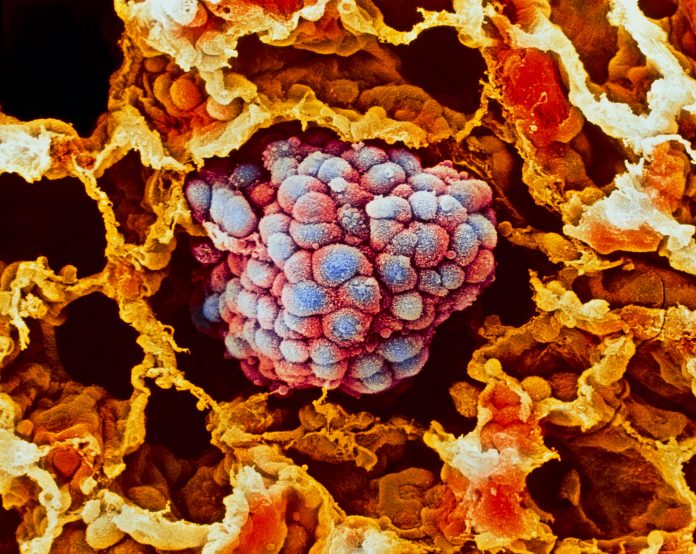
A clinical trial led by investigators at The Keck Medicine of USC will investigate the feasibility of providing immunotherapy treatment at home for patients with non-small cell lung cancer (NSCLC).
Currently, immunotherapies are only administered intravenously in a doctor’s office or hospital. But the new trial will examine the effectiveness of a new formulation atezolizumab, an approved immunotherapy for particular types of NSCLC, to see if it can be safely and effectively administered subcutaneously by a nurse in a patient’s home. The regimen will also include telemedicine appointments and remote monitoring of patients via wearable trackers.
“Many types of drugs are now being delivered subcutaneously at home for several conditions, and we hypothesize that this method of drug delivery can also be successful for cancer patients,” said Jorge Nieva, MD, a medical oncologist and lung cancer specialist with Keck Medicine, a member of USC Norris Comprehensive Cancer Center and lead investigator of the clinical trial. “Additionally, since COVID-19, we’ve learned that physicians have the digital tools to provide patients with excellent remote care.”
The clinical trial is the first of its kind to test at-home administration of subcutaneous immunotherapy and could beckon a new paradigm for cancer care. Nieva said that moving immunotherapy from a medical setting to a patient’s home could have a number of benefits. Patients would no longer need to travel to a doctor’s office or medical facility for their treatments, activity which can be especially taxing for those patients who are weak and in advanced stages of NSCLC. Patients would also feel more relaxed in their own homes. It also has the potential to expand access to immunotherapy treatments to patients who live in rural settings or don’t have access to reliable transportation.
Providing subcutaneous delivery also has advantages to intravenous delivery. “The procedure is easier and faster to administer and less likely to cause infection or complications, and patients avoid the potential discomfort of being stuck with a needle several times in the attempt to find a suitable vein for the IV,” Nieva said.
But it was an experience with a patient during the COVID-19 pandemic that spurred Nieva’s interest in providing at-home treatments, when the patient, fearful of exposure to the virus stopped going to the hospital for treatments and later died.
Atezolizumab is a monoclonal antibody that was approved by the FDA in 2016 for late-stage lung cancer and again in 2021 for early-stage NSCLC.
For the trial the investigators plan to enroll 37 patients with NSCLC who would benefit from immunotherapy treatment. The drug will be administered in patient homes by a nurse every three weeks between one and two years. The trial will also include the use of digital monitoring technologies to track patients’ vital signs, activity and other markers of health. Patient will also be provided with telehealth visits.
The hope is that if the trial is successful to NSCLC patients, that the protocol could be expanded to other forms of cancer.
“Increasingly, health care is moving in a direction where instead of patients going to us for services, we are able to come to them, increasing access to care and potentially addressing existing health care disparities,” said Nieva. “If this study can show that at-home cancer immunotherapy is safe and feasible for non-small cell lung cancer, it will open the door for more home treatments for other types of cancers in the future.”













